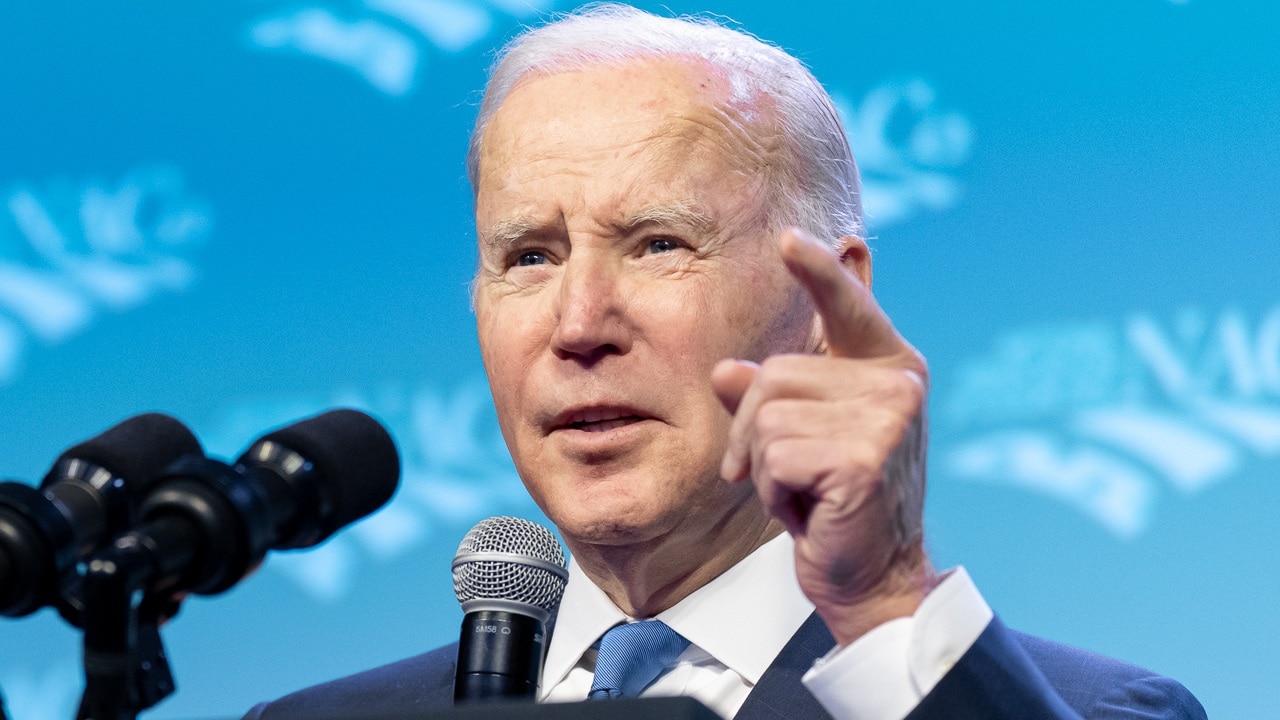Does Joe Biden have a problem? “Student Loan Debt Relief Is Blocked,” reads studentaid.gov. “If you’ve already applied, we’ll hold your application. Subscribe and check back here for updates.”
This is the message waiting for student loan borrowers hoping to apply for the Biden administration’s student loan cancellation.
Check back later.
Presumably, after the Supreme Court of the United States weighs in next week.
After months of speculation, the Supreme Court will finally hear arguments, and ultimately decide, whether Biden’s plan to cancel student debt for federal borrowers is legal. The issue has been a political lightning rod for months – with Democrats celebrating the cancellation, and Republicans moving in opposition.
The application for loan relief was opened on October 26, and in just weeks, 26 million borrowers applied.
The application process was paused however when two lawsuits were filed – which have ultimately led to the Supreme Court arguments that will occur next week.
What will SCOTUS decide?
Legal experts believe Biden’s student loan cancellation program will be scrutinized under the major questions doctrine.
The major questions doctrine holds that courts should not defer to an agency’s statutory interpretation that concerns questions of “vast economic or political significance.”
The Supreme Court justifies its use of the major questions doctrine through the nondelegation doctrine, which holds that Congress may not delegate its legislative powers to other entities.
Basically, the two doctrines break down to the idea that executive branch bureaucrats should not be the ones making decisions of “vast economic or political significance” (the major questions doctrine) and that instead, those decisions need to be made in Congress (the nondelegation doctrine).
Both doctrines are tools to establish and enforce the separation of powers.
So, the heart of the hearing over student debt cancellation is whether Biden overstepped his authority in cancelling student debt without congressional authorization.
Democrats say no. Republicans say yes.
Republicans have been leaning on the major questions doctrine with increased frequency, “to curb what they call the excesses of the “administrative state,” according to Reuters.
Republicans “object to what they see as accumulated power by U.S. government’s executive branch without proper checks by the courts and Congress.”
This is why student loan borrowers are especially nervous about next week’s oral arguments. The Supreme Court is currently composed of six conservative justices and just three liberal justices.
“The conservative justices already have shown skepticism toward giving deference to federal agency decisions,” Reuters reported.
As a result, the major questions doctrine “looms over any big agency action that the administration wants to do,” law professor Mila Sohoni said. “the doctrine allows courts a great deal of leeway to pick and choose which agency actions to strike down and which to sustain.”
Borrowers are not optimistic about the Supreme Court’s upcoming decision.
The expectation is that the Supreme Court will shoot down Biden’s loan cancellation as an overstep of his authority.
And when the Supreme Court does that, they’ll kick the issue over to Congress, which won’t be legislating any student debt cancellation for the foreseeable future.
Student Loans Should Be Forgiven
I have student loan debt. I don’t expect to pay it off anytime soon. Or I might work in public service for the qualifying ten years and have the loans forgiven entirely.
Either way, my loans are a personal burden that I may never pay off, which inhibits my ability to participate in the economy.
Multiply my situation by 45 million (the number of US student loan borrowers) for a total of $1.6 trillion in federal student loan debt and you’ve got a serious problem – both on the personal – and national-economic level.
The student loan debate is often framed as a choice between cancelling loans and collecting loans. But that’s absurd.
Many borrowers, myself included, are unlikely to pay the loans back. So, the debate should be framed instead as being between cancelling the loans or waiting for loan repayment indefinitely while hindering the economy.
MORE: Pete Buttigieg Is Destroying Himself
MORE: Kamala Harris Is Creating a Nightmare for Democrats
MORE: Are We Watching the End of Donald Trump?
Harrison Kass is the Senior Editor at 19FortyFive. An attorney, pilot, guitarist, and minor pro hockey player, Harrison joined the US Air Force as a Pilot Trainee but was medically discharged. Harrison holds a BA from Lake Forest College, a JD from the University of Oregon, and an MA from New York University. Harrison listens to Dokken.

